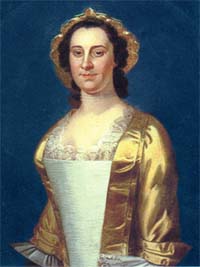Mr. Lansing remained in the bank with his father-in- law for a number of years, and then went with his family to Detroit, Mich.,
where he accepted the cashiership of the bank called "The Michigan Insurance." Remaining only a year or so in this bank Mr. Lansing
was called to the cashiership of the Oliver Lee & Company Bank, Buffalo, N. Y., which institution he remained in as cashier, and afterwards as president, until the bank was forced, in the great panic of 1857, to shut its doors.
Some time after the failure of the bank, Mr. Lansing accepted the office of treasurer and secretary of the Buffalo and Erie Railroad, with its office at Buffalo. This position he held for a number of years, filling the office with great acceptability to the directors of the
company. Resigning his office, Mr. Lansing, about the year 1873, purchased a charming country place at Niagara, Ontario, and there he passed his summers until the time of his death in 1889.
Mr. Lansing was essentially. a domestic man, he was fond of his home and devoted to his family. He was ever led to seek the highest happiness in his own domestic circle and possessed in a high degree those social qualities which belong to the refined and cultured gentleman. In a certain sense Mr. Lansing was the fruit of hereditary culture his father and grandfather on the paternal and materna1 side were bon vivants and connoisseurs. He prided himself upon his accurate judgment and discrimination in the choice of and selection of fine wines, and was an epicure in the best sense of the word, a lover of life's good things.
In one particular, in which business men are too generally negligent, Mr. Lansing excelled;
he had cultivated the art of letter writing until his epistolary style became of rare excellence.
He could express himself in the readiest and neatest way with great apparent ease, his letters
were bubbling over in sentiment, expressed with great felicity and beauty, as all who ever
received them will bear testimony.
Mr. Lansing was extremely fond of the sylvan sports, was an exceedingly good shot and an
expert fisherman. In the years gone by, in order to indulge in the latter sport, he was compelled
to make his own flies, and it was that accomplished gentleman and skillful sportsman, Alexander Jeffrey
of Lexington, Ky., but who at that time lived in Canadaigua, who taught him how to make and use them, and
it was this same gentleman who taught Seth Green, of Rochester, N.Y., who became the State's
most expert fisherman, all he knew about angling.
Mr. Lansing was a most delightful companion and enjoyed good company, but it had to be the best in order to
afford him any pleasure. He was extremely fond of poetry and had no end of quotations upon his tongue's
end, and possessed the unusual faculty of being able to repeat from memory whole pieces, no matter how long
they were, provided they awakened a responsive chord.
Mr. Lansing, coming as he did from a military family, very naturally inherited military tastes, and shortly
after the outbreak of the Civil war was appointed by the governor of New York chairman of the Senatorial
Committee of his Senatorial District, which was composed of the following very prominent citizens of
Buffalo: Nathan K. hall, Stephen G. Austin, Jacob Beyer, John Ganson, Philip Dorsheimer, and Alexander W. harvey.
At this time Mr. Lansing was brigadier-general of one of the brigades attached to the Eighth Division of
the State militia. Mr. Lansing served faithfully upon this committee and through its efforts Colonel
Chapin's regiment, the One Hundred and Sixteenth New York Volunteers, and McMahon's Irish regiment, the
Corcoran Guards, were organized, recruited, and sent to the front, where they did most excellent service.
Mr. Lansing departed this life, after a tedious illness which he bore with great fortitude, at Canandaigua,
on the morning of the 30th of September, 1889, and left him surviving a widow and two sons, Livingston and
Watts Sherman Lansing. He was buried at Forestlawn Cemetery, Buffalo, N.Y.
[Will]
I, Henry L. Lansing of the township of Niagara, County of Lincoln Canada, but at this present writing residing in the Village of Canandaigua, County of Ontario, State of New York, United States of America, do make and declare this to be my last will and testament.
First: I give and bequeath to my wife Catharine Olivia, all the furniture, paintings, engravings belonging to me, also my library and all my horses, harnesses and carriages all of which are now in "Woodlawn" Canada.
Second: I give and bequeath to my sister Manette, wife of C.W. Morse of Saybrook, Connecticut, two thousand dollars, par value, of the stock of the Erie & Pittsburgh Rail Road Co (that is, forty shares at fifty dollars per share.)
Third: I give and bequeath to my grandson and namesake Lansing Burnett, son of my deceased daughter Sarah, my gold watch chain and locket, two pairs of gold sleeve buttons and two gold scarf pins.
Fourth: I give and bequeath to my grandson and namesake Harry Livingston Lansing, son of my son Livingston, my double-barreled breechloading shotgun and all the traps belonging thereto with gun xx, also all my fishing rods and tackle and artificial flies and bait.
Fifth: I give and bequeath to Ellen Gillen who has been a faithful servant in my family for many years, Five hundred dollars par value





